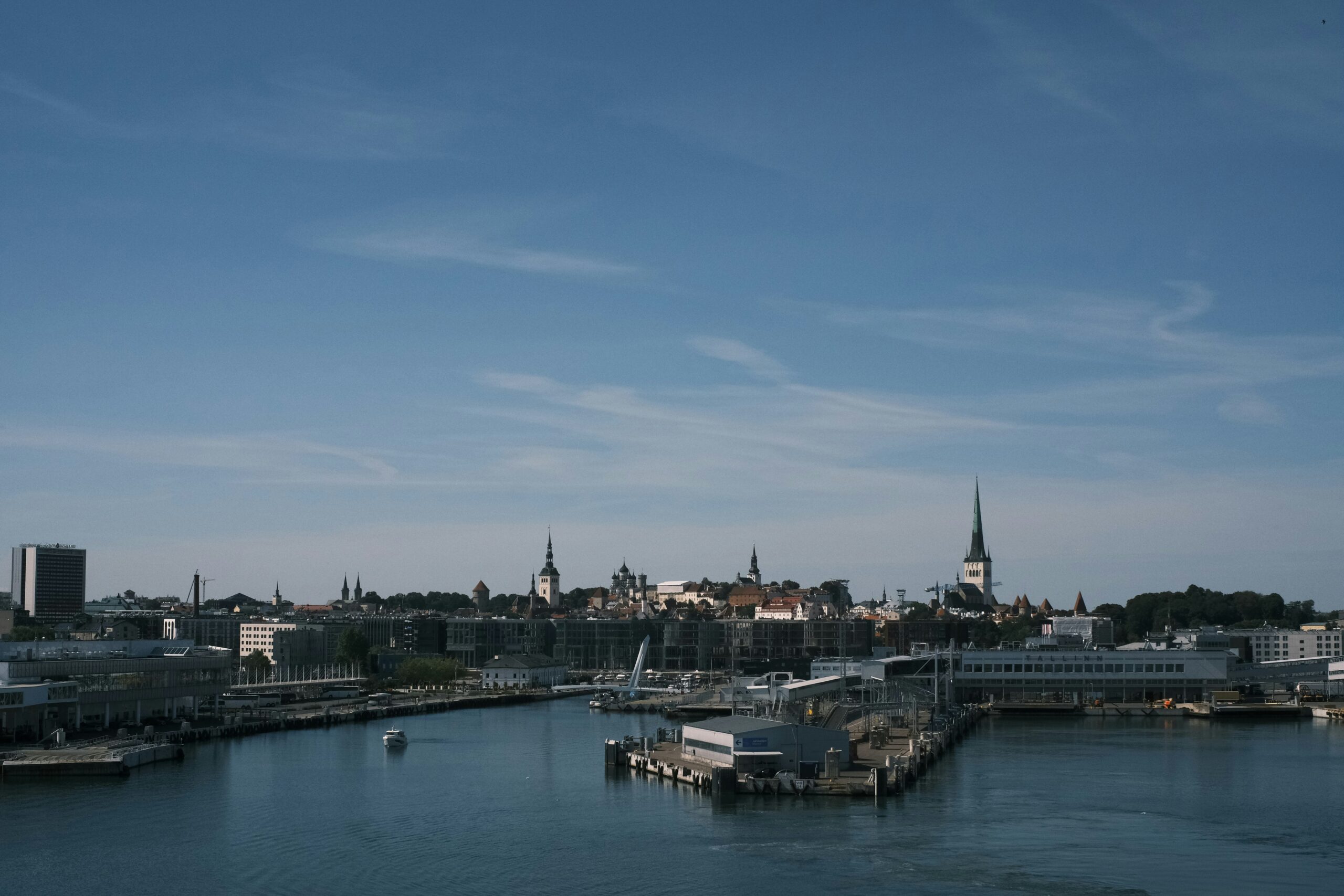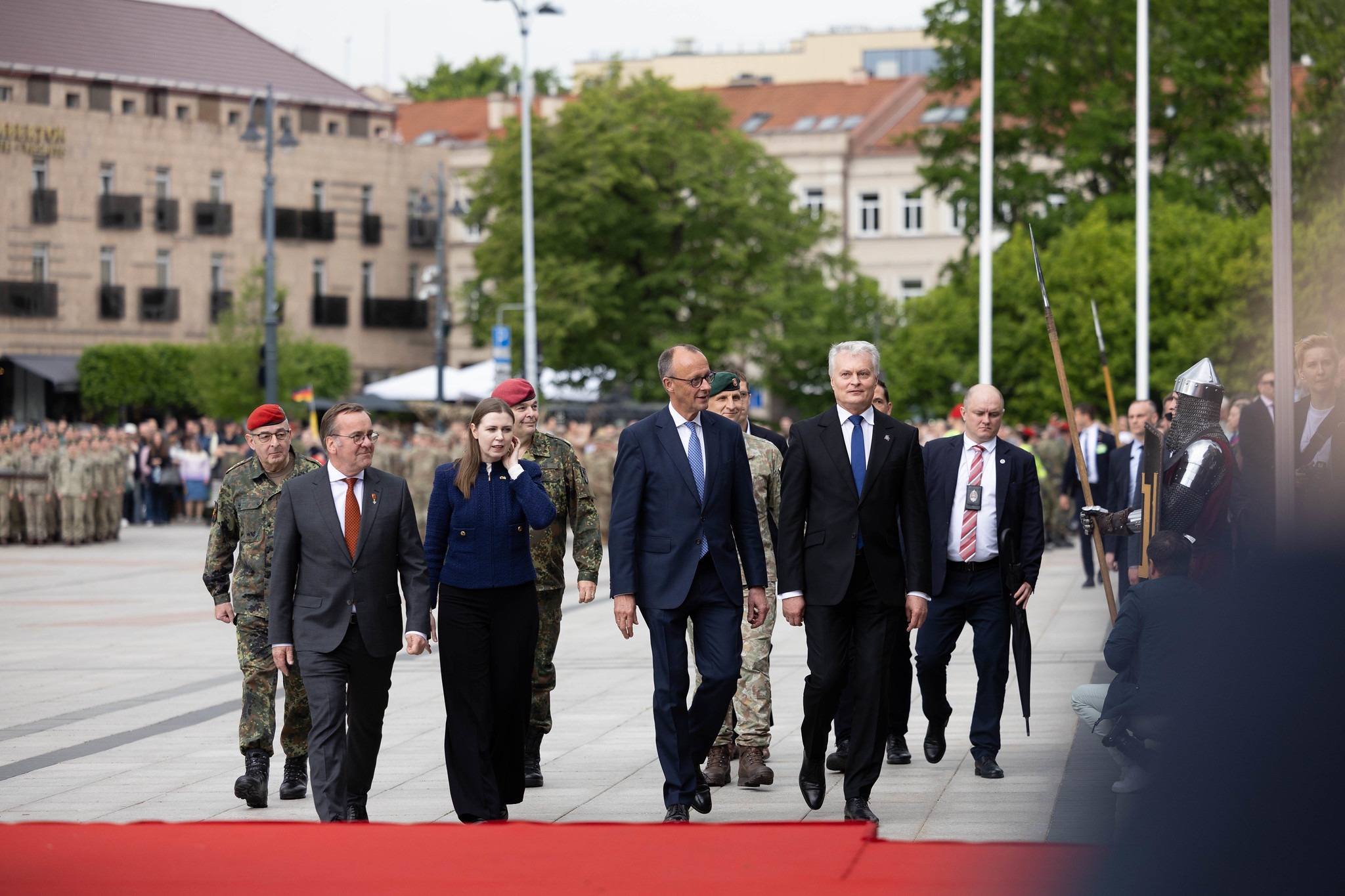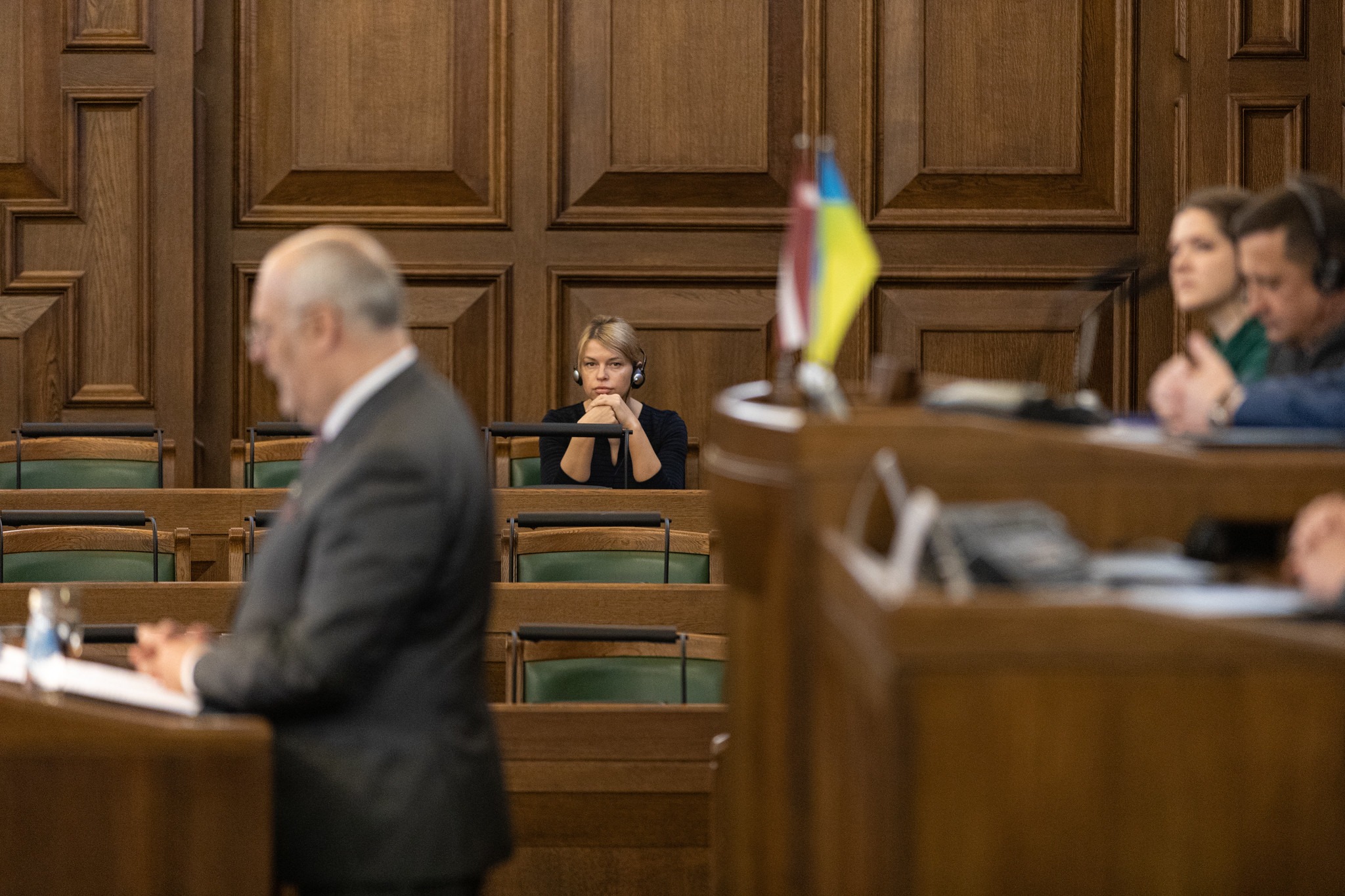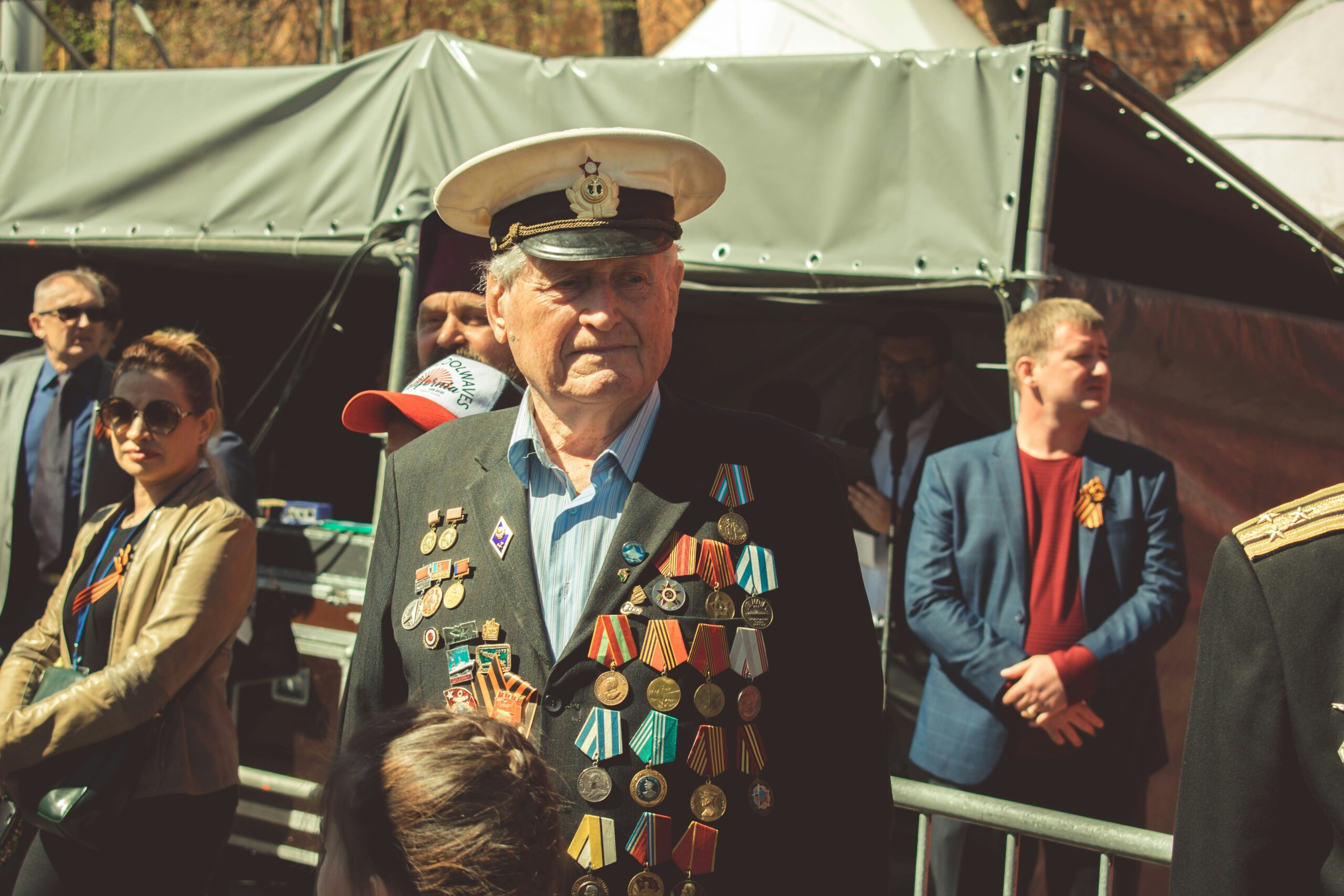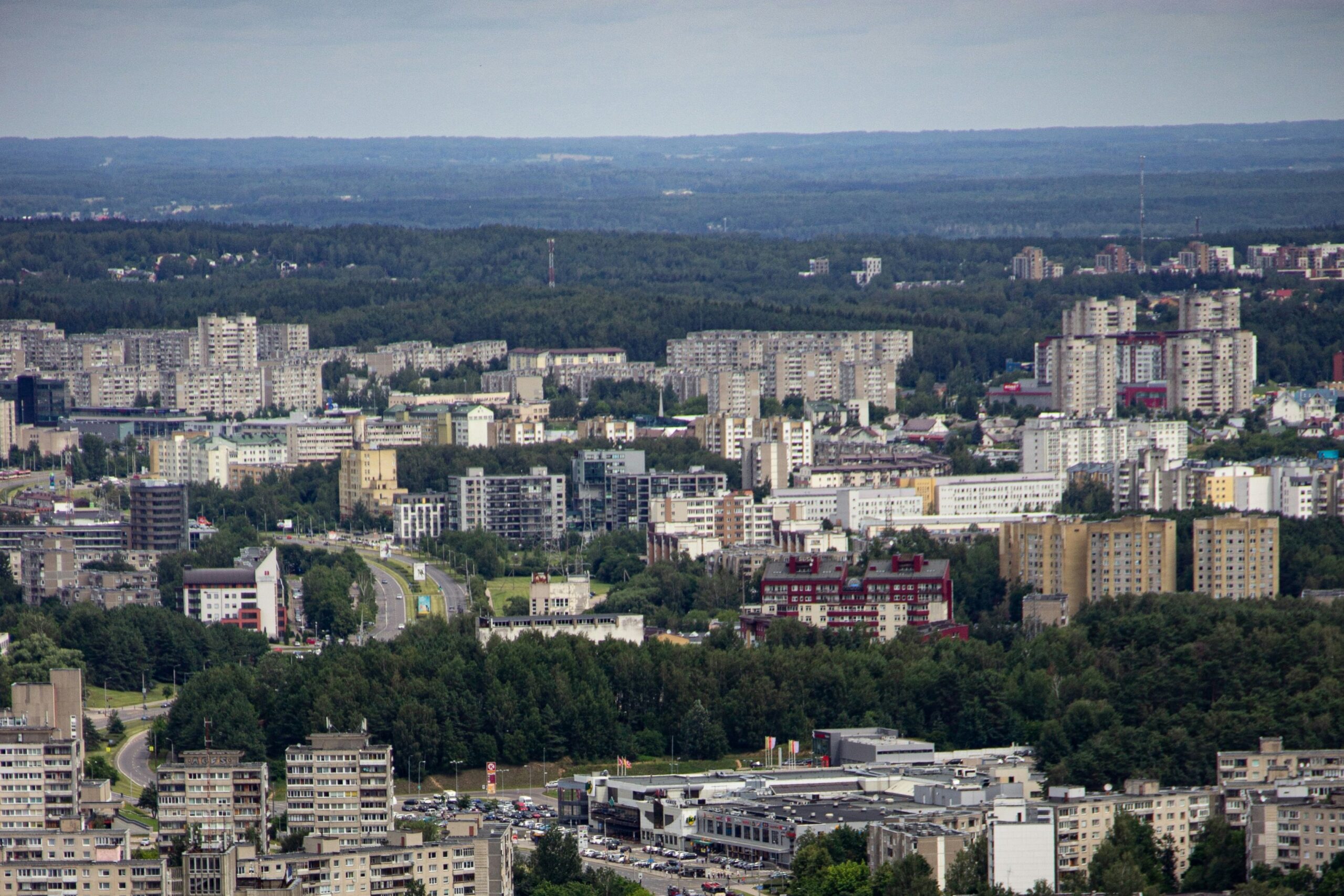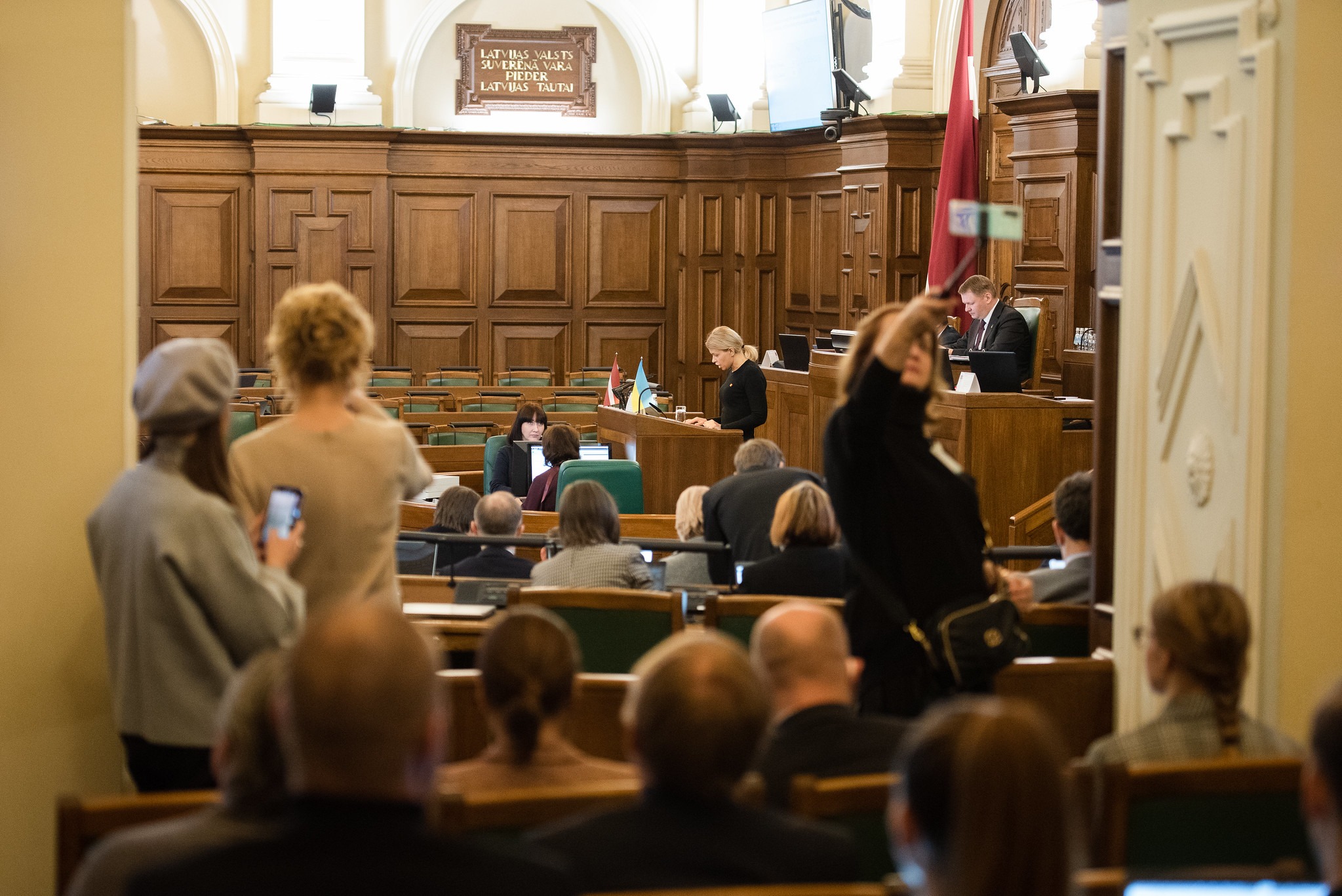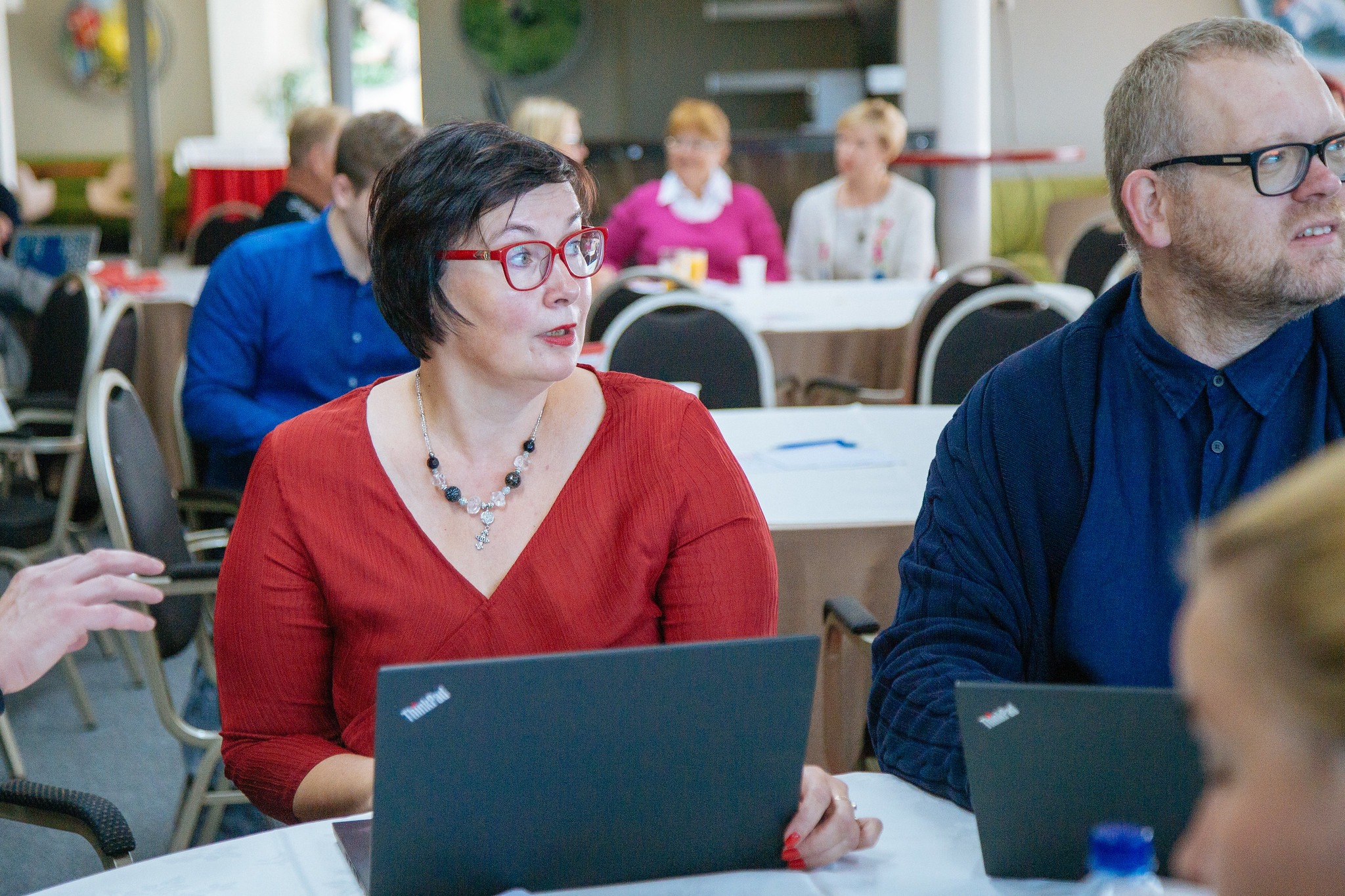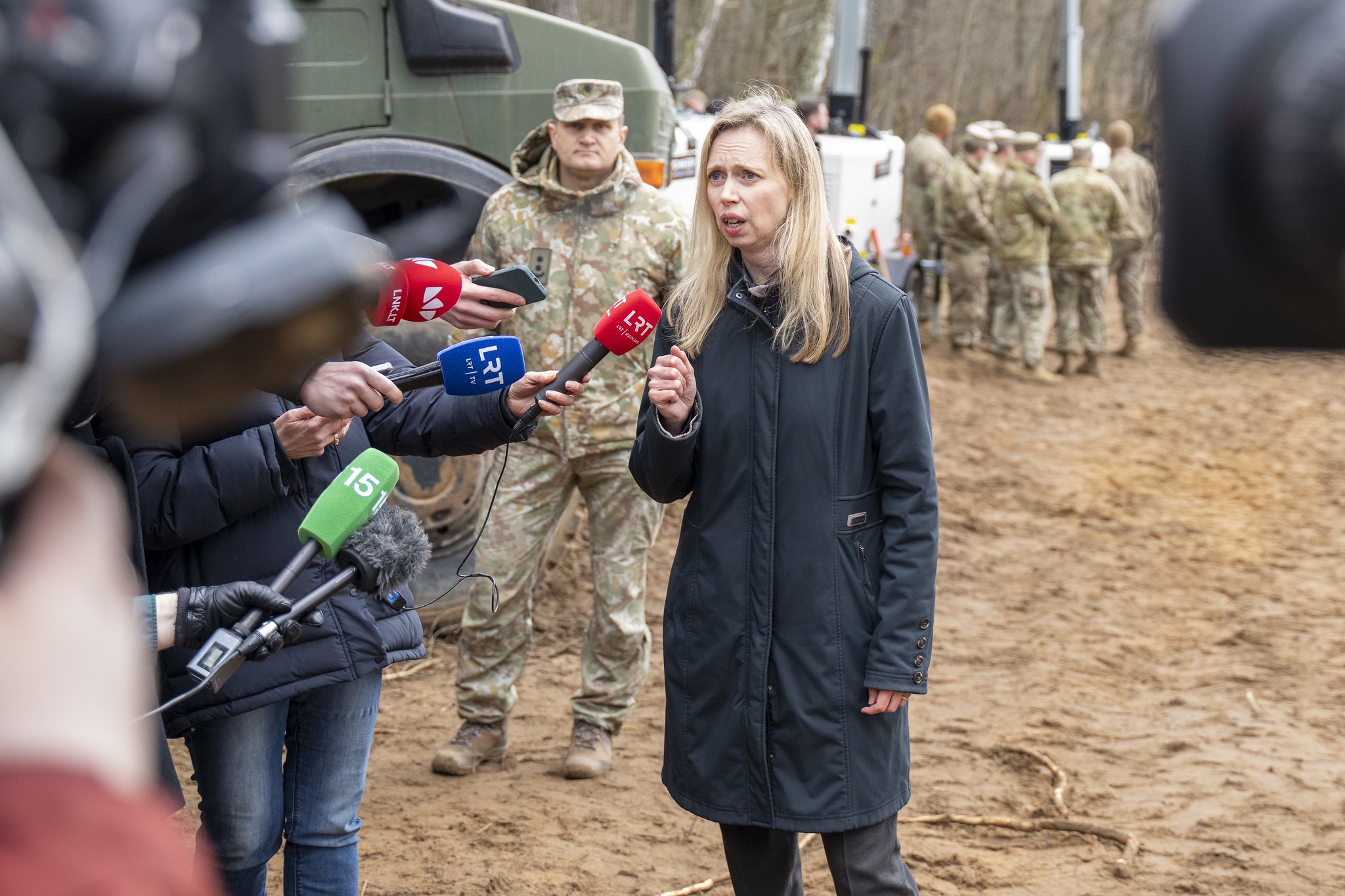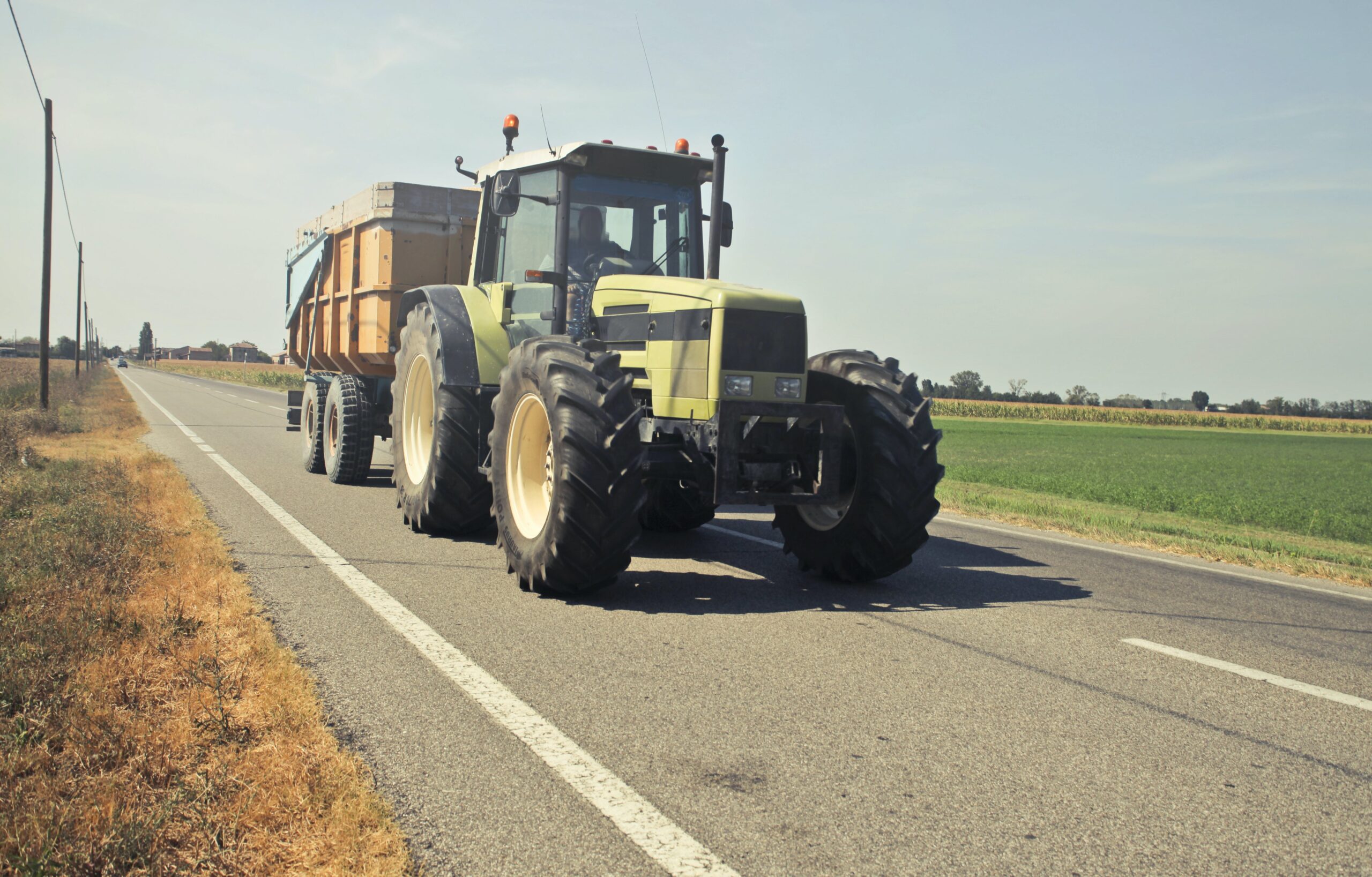
Key Insights:
Lithuanian social media buzzed with diverse topics all through the month of January. Social media monitoring tool Awario revealed the most engaging stories, highlighting which one truly resonated with Lithuania’s audiences:
- The ongoing Israel–Hamas war (mainly covering the Hezbollah drone strike on a base in northern Israel and leaked footage from the tunnel where the Israeli hostages were held);
- The ongoing Russia’s war against Ukraine (emphasising the consequences of the attack on the Russian airfield in Crimea as well as covering Ukraine’s investigations into the Russian military plane that crashed, killing 65 Ukrainian prisoners of war on board);
- The widespread search for a girl kidnapped in Kaunas city, who was found alive after a frantic 2-days search by police and hundreds of volunteers);
- Two-day mass protests by Lithuanian farmers in Vilnius;
- Historical European Figure Skating Championship, held in Lithuania for the first time and scandals of alleged abuse of workers that followed;
- Challenging weather conditions, with extreme cold and heavy snow majorly affecting traffic;
- More new candidates announced, running in the presidential elections later this year;
- The coverage of the Dakar Rally.
Considering specifically the Kremlin-aligned media outlets that are still operating in Lithuania, they continued to promote the anti-government narrative to their audiences actively. A majority of the most engaged stories by social media users from this specific type of media highlighted domestic issues and criticised the poor work of either the whole government or particular officials, channelling negative sentiments to their followers. Pro-Kremlin media widely discussed the detention of an active participant in anti-government protests, nicknamed Celofanas. This recent detention provided Kremlin-aligned followers with a solid argument for blaming the government for a “violation of free speech” and “undemocratic aims to detain everyone that dares to think differently to the ruling officials. Other articles with high levels of engagement discussed and criticised local politicians or institutions; for example, blaming the “anticorruption commission of mocking people” or falsely accusing the Lithuanian government of “easily giving up the country’s independence”. These events were covered in such a way that promoted anti-government sentiments amongst their audiences
Outlets aligned with the Kremlin sought to impede Lithuania’s ongoing support for Ukraine by alleging its ineffectiveness and irrelevance. These outlets further stoked internal division by falsely accusing the Lithuanian government of neglecting domestic issues in favour of foreign aid. Additionally, they employed derisive questioning regarding Lithuania’s democratic future and dismissed the possibility of a Ukrainian victory. Also, even a domestic event – a fire at an apartment building in Vilnius, in which 15 people were rescued and two died – was converted into a story, negatively picturing Ukrainian refugees. Malign actors quickly linked the event to different conspiracy theories; for example, referring to it as a terrorist attack, claiming that police knew about the bomb but did not stop the approaching accident, and, most importantly, assuming that the bomb had been brought by Ukrainian refugees.
Overview of findings:
- A total of 713 articles (compared to 620 articles throughout December) were scrutinised from four Kremlin-aligned media outlets still operating in Lithuania: 77.lt, bukimevieningi.lt, ekspertai.eu and laisvaslaikrastis.lt.
- News outlet 77.lt managed to increase the already notable publishing pace this month even further, releasing 475 of 713 of all articles – 67% of all articles analysed. The official Facebook page of the same media outlet has also slightly increased its productivity, publishing even 160 Facebook posts (previously, 137 per the same period). This outlet manages to maintain consistency and high activity that is alerting and must be watched closely to expose a potentially huge number of biased publications.
- Moreover, with the Facebook platform, among the most active pages – one of the main pro-Kremlin actors and a well-known participant in anti-government protests, Antanas Kandrotas, publicly known under the nickname Celofanas (Cellophane). Important to remember that the media outlet 77.lt is also strongly associated with the same persona. On his page “Celofanas LIVE”, he managed to maintain a notable pace, publishing even 105 posts throughout January (quantity even further increased, compared to the already noteworthy 69 posts throughout December). Hardly any other page of one specific person comes near to such a high activity of publishing on social media. Again, as the page’s title implies, nearly all of the posts were live video streams of him talking to his audience.
- One post from the above-mentioned page stood out with its significant engagement (see screenshot on the right), scoring over 12k interactions (reactions, comments and shares combined) from social media users. Live video this time captured the actual detention of Celofanas as police took him out of the car. Together with him was his wife, whom he asked to take the camera from him and keep on recording to capture the moment when he was drawn from the vehicle and his children. Within more than 4k comments, there were varying statements, but the whole filming situation and dealing with the police in front of his family and camera was so absurd that the ‘laughing’ emojis while reacting to the video overruled other reactions. A fair deal of commenters also identified this in the comments by stating that “a normal person would get out of the car instead of traumatising one’s children’.
- Data from the Awario media monitoring tool showed that the topic of Russia’s war against Ukraine was way more topical on social media compared to the month of December. Mentions of Ukraine (and forms of this word in Lithuanian) in media skyrocketed by more than 90% (see graph below).
- The same monitoring tool also revealed that almost 15% of these pieces held a negative sentiment, a slight decrease of 5% compared to the previous month (see graph below). Despite the decrease, having in mind the major increase in article numbers and a similar percentage of those holding a negative sentiment, it reveals a noteworthy consistency in the usage of war in Ukraine for the spread of anti-Ukrainian and anti-government narratives. It is also worth noting that media monitoring tools are unable to recognise sarcasm, which is very commonly used by Kremlin-aligned actors, so the percentage of negative sentiments might be way higher than noted.
Story of the month: Farmers’ protest in Vilnius city centre
During the reporting fortnight, a mass farmers’ protest took place in Vilnius city centre. The main reason for this is Lithuanian farmers being angry with the government’s (and, at times, the EU’s) agricultural policies. Dissatisfaction led to bringing their demands to Vilnius, alongside around 1,300 pieces of heavy agricultural machinery lined along the city’s main boulevard (see picture on the right). The farmers have put forward six main demands, some of them related to environmental policies. Among them, farmers oppose recently raised excise duties on petroleum gas, a ban on using untaxed fuel for non-agricultural machinery, and requirements to restore grasslands and keep protective zones around bodies of water. Due to the high numbers of heavy machinery, strongly disrupted traffic in Vilnius, and the event’s general exposure, the protest was widely covered across all kinds of media in Lithuania, becoming one of the most important news of this reporting period.
Independent media and actors mainly covered the event’s details, analysed the farmers’ requirements, and encouraged a clear dialogue between the government and farmers to reach a solution that would suit everyone. For example, pro-Ukrainian activist and stand-up comic Oleg Surajev concluded that in a post (see screenshot on the left). After naming the main farmers’ requirements that he managed to find, he concluded with: “So maybe let’s start talking and not make stupid headlines with coffin and horns [referring to an article by Lithuanian Radio and Television], but let’s discuss the requirements and create a dialogue. If the requirements are inadequate – we provide arguments; if there are any interest groups – we provide arguments. If the requirements are logical here – we are looking for solutions on how to implement them. It looks like a kindergarten, and there is no free discussion, and LRT makes memes from the headlines. Because if there isn’t a normal discussion, orlauskai and janutienes [referring to anti-government actors operating in Lithuania] will come again with their s*it.
Meanwhile, Kremlin-aligned media went for way more emotional responses, turning the event into an argument to back up the anti-government sentiments. Respublika.lt re-posted its article in a post on its official Facebook profile (see screenshot on the right), gathering over 2K reactions from social media users. The article’s headline not only claimed that “the ruling officials went hiding after seeing the farmers”, but the whole text harshly criticised the entire government, barely touching the topic of protest itself. The most engaged comment overall seen during this fortnight (see lower right) also disparaged the government, separated “them”, the officials, who are unaware of “us”, the poor citizens and blamed the whole Seimas for “not thinking about the country’s future”.
Lawyer Ignas Vėgėlė, who quite recently announced his candidacy to run for the presidential post, has also publicly covered the farmers’ protest. In a live video on his profile (see screenshot on the left), he openly praised the idea of the protest, kept on repeating how strongly he encourages freedom of speech and standing for one’s rights, and how he admires the strong will of all of the farmers’ participating in the event. Vėgėlė not only boldly supported the protesters but also counterattacked the “mainstream” worries, e.g. considerations of how will the infrastructure of the main boulevard in Vilnius will be affected, thus gaining protesters’ trust. Commenters actively supported the candidate, not only praising him for his position expressed in the video, but also calling him the “future president” and promising not to vote for anyone else, only for him (see examples on the lower left).
Once again, mass events in Lithuania became a soil for Kremlin-aligned actors to spread the anti-government narratives. Activity of such actors remains notably high and is yet expected to increase as the elections approach.

